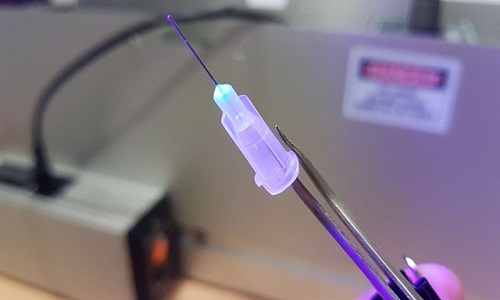Needle Bonding Adhesives for Secure and Reliable Syringes
In the world of medical devices, precision and reliability are paramount. Syringes, seemingly simple tools, play a crucial role in medication delivery, requiring a secure bond between the needle and the syringe body. This is where needle bonding adhesives come in – the silent partners ensuring the integrity and safety of every injection. Why are Needle Bonding Adhesives Essential? Traditional methods like soldering or crimping can compromise the sterility and functionality of syringes. Needle bonding adhesives offer a superior solution: Strong and Reliable Bonds: These adhesives create a robust connection between the needle and the syringe body, ensuring they withstand pressure during injection without leaking or separating. Enhanced Patient Safety: Secure needle attachment minimizes the risk of accidental needle detachment, promoting patient safety and a positive experience. Improved Sterilization Compatibility: Unlike some traditional methods, needle bonding adhesives are compatible with various sterilization techniques, maintaining sterility throughout the product lifecycle. Streamlined Manufacturing: Many needle bonding adhesives offer fast curing times, facilitating efficient and high-volume syringe assembly. Types of Needle Bonding Adhesives Needle bonding adhesives come in various formulations to cater to specific needs: Light Cure Acrylics: Offer rapid curing upon exposure to UV light, ideal for high-speed automated assembly lines. Light Cure Cyanoacrylates: Provide very fast bonding and high strength, suitable for applications requiring immediate adhesion. One-Part Heat Cure Epoxies: Form strong, durable bonds and resist harsh sterilization methods, ideal for demanding applications. Choosing the Right Needle Bonding Adhesive Selecting the optimal adhesive depends on several factors: Desired Cure Speed: Consider production line speed and the need for immediate bonding. Material Compatibility: Ensure the adhesive adheres well to the specific materials of your syringe and needle. Sterilization Compatibility: Choose an adhesive compatible with your preferred sterilization method (e.g., autoclave, ethylene oxide). Viscosity: Opt for a viscosity that allows for easy dispensing and fills gaps effectively. Regulatory Compliance: Ensure the adhesive meets relevant medical device standards (e.g., USP Class VI, ISO 10993). Beyond the Basics: Additional Considerations for Needle Bonding Surface Preparation: Proper cleaning and activation of bonding surfaces ensure optimal adhesion. Dispensing Equipment: Consider using automated dispensing systems for accurate and consistent adhesive application. In-Line Inspection: Integrate quality control measures like fluorescent dyes to ensure proper bond formation. The Power of a Secure Bond: Why Needle Bonding Adhesives Matter Needle bonding adhesives play a vital role in ensuring the safety and efficacy of syringes. Their ability to create strong, reliable bonds while maintaining sterility makes them an essential component in modern medical device manufacturing. So, the next time you receive a medication injection, remember the silent heroes – the needle bonding adhesives working behind the scenes to deliver a safe and effective experience.
